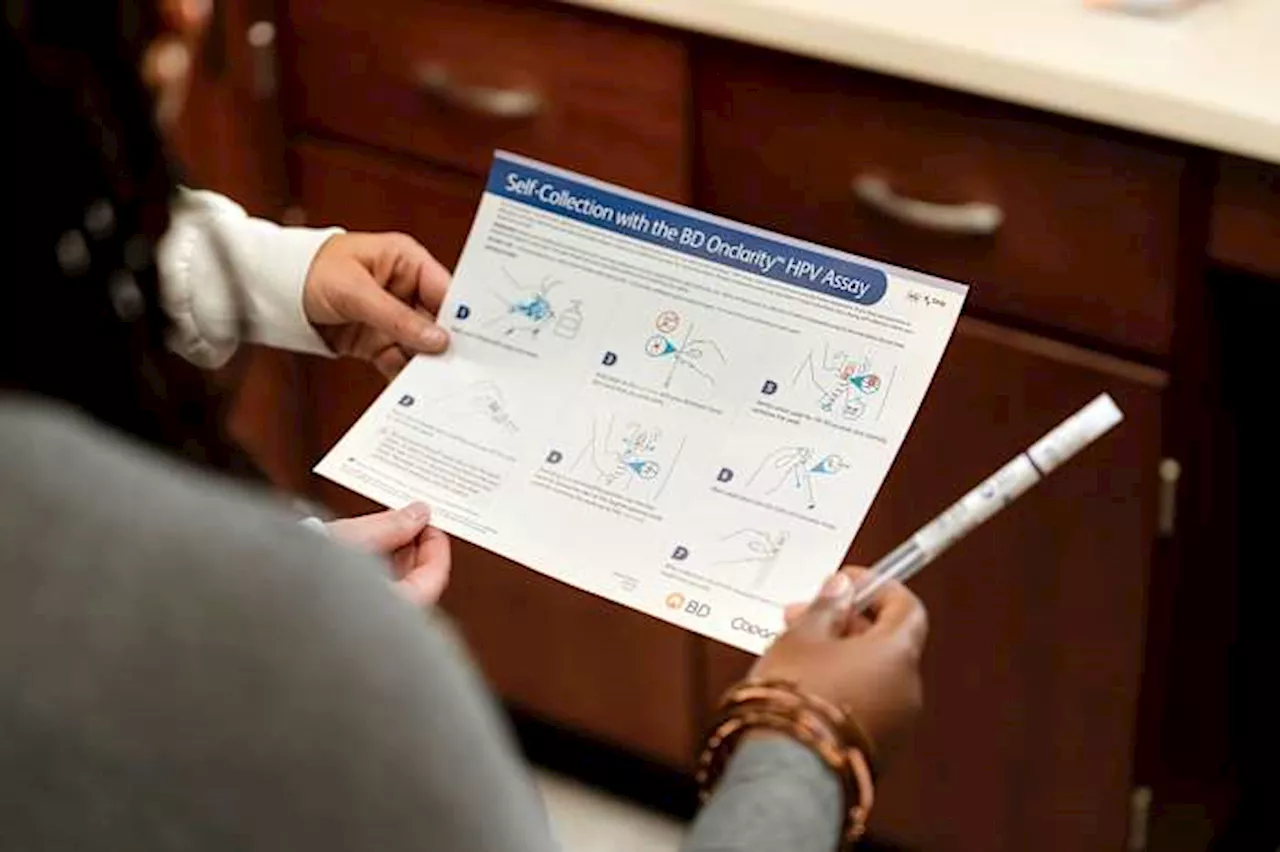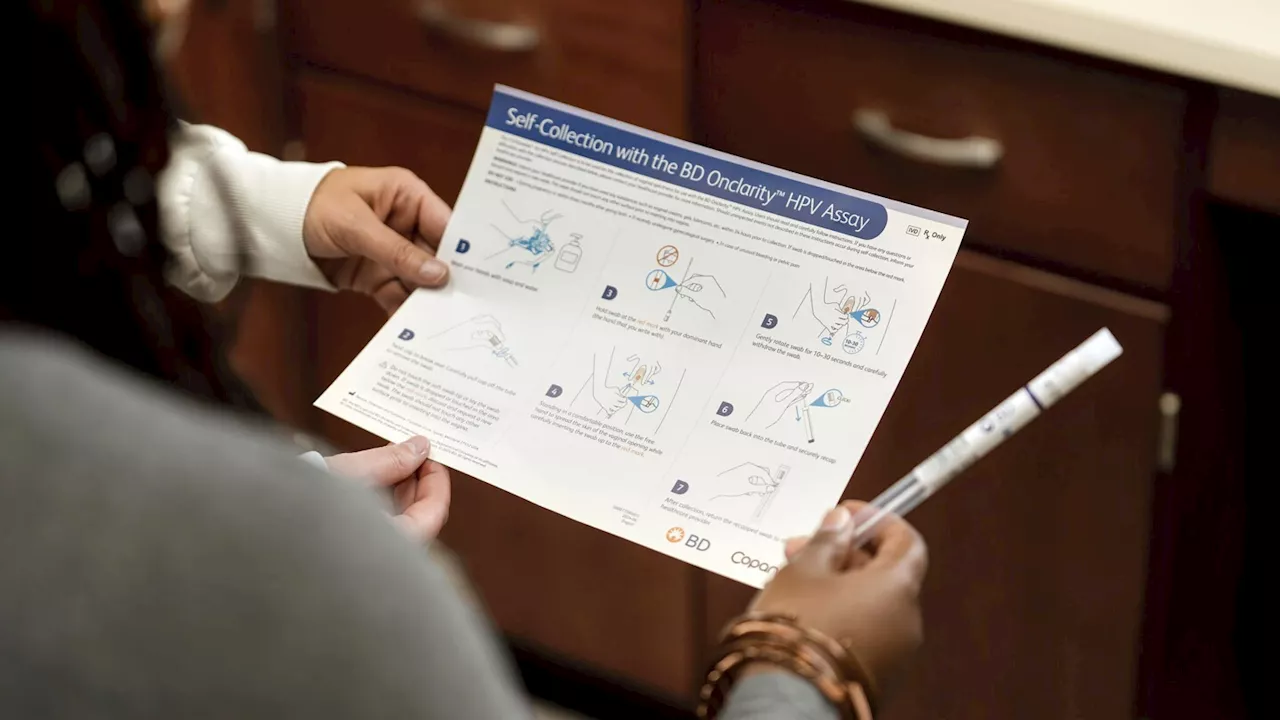A new recommendation from the U.S. Preventive Services Task Force encourages women to consider self-collected samples for cervical cancer screening, aiming to increase participation and reduce the burden of the disease.
Earlier this year, U.S. regulators expanded the use of two HPV test kits to include self-collection. Studies show women and doctors take samples with similar accuracy.Women should have the option of taking their own test samples for cervical cancer screening, an influential health panel said Tuesday.from the U.S. Preventive Services Task Force are aimed at getting more people screened and spreading the word that women can take their own vaginal samples to check for cancer-causing HPV.
Women in their 20s should still get a Pap test every three years. But after that — from age 30 to 65 — women can get an HPV test every five years, the panel said. And those HPV tests can be done with samples collected either by a doctor or by the patient herself in a mobile clinic or medical office. Women ages 30 to 65 can still opt for a Pap test done by a doctor every three years, or a Pap plus an HPV test every five years.“I’m very hopeful that self-collection will help even more women get screened and help us reduce even further the burden of cervical cancer among women,” said task force vice chair Dr. John Wong of Tufts University School of Medicine.Mammograms should start at 40 to address rising breast cancer rates at younger ages, new guidelines says HPV, or human papillomavirus, is very common and is spread through sex. Most HPV infections clear up on their own, but persistent infection can lead to cancer of the cervix. Most cervical cancers occur in women who are inadequately screened, diagnosed or treated. To collect a sample, a swab or brush from the kit is inserted into the vagina and rotated. It is put in a tube and processed at a lab. The HPV tests detect high-risk types of the virus. In contrast, a Pap test looks for abnormal cells in the cervix. Australia, Denmark, the Netherlands and Sweden already use self-collection for cervical cancer screening. Deaths from cervical cancers have declined in the U.
CERVICAL CANCER SCREENING HPV TEST SELF-COLLECTION HEALTH GUIDELINES
United States Latest News, United States Headlines
Similar News:You can also read news stories similar to this one that we have collected from other news sources.
 U.S. health panel recommends self-testing option for cervical cancer screeningWomen should have the option of taking their own test samples for cervical cancer screening, an influential health panel said. Studies show women and doctors collect samples with similar accuracy.
U.S. health panel recommends self-testing option for cervical cancer screeningWomen should have the option of taking their own test samples for cervical cancer screening, an influential health panel said. Studies show women and doctors collect samples with similar accuracy.
Read more »
 Panel recommends biannual pay increases for Alaska governor, legislatorsThe recommendations come a year after the commission approved a 67% raise for lawmakers and 20% raise for the governor and his cabinet.
Panel recommends biannual pay increases for Alaska governor, legislatorsThe recommendations come a year after the commission approved a 67% raise for lawmakers and 20% raise for the governor and his cabinet.
Read more »
 Congressional Panel Recommends Major Changes in US-China Trade RelationshipThe U.S.-China Economic and Security Review Commission advised ending permanent normal trade relations with Beijing.
Congressional Panel Recommends Major Changes in US-China Trade RelationshipThe U.S.-China Economic and Security Review Commission advised ending permanent normal trade relations with Beijing.
Read more »
 US health panel adds self-testing option for cervical cancer screeningA U.S. health panel says women should have the option of taking their own test samples for cervical cancer screening.
US health panel adds self-testing option for cervical cancer screeningA U.S. health panel says women should have the option of taking their own test samples for cervical cancer screening.
Read more »
 US health panel adds self-testing option for cervical cancer screeningA U.S. health panel says women should have the option of taking their own test samples for cervical cancer screening. The draft recommendations from the U.S. Preventive Services Task Force issued Tuesday are aimed at getting more people screened for cervical cancer. Women in their 20s should still get a Pap test every three years.
US health panel adds self-testing option for cervical cancer screeningA U.S. health panel says women should have the option of taking their own test samples for cervical cancer screening. The draft recommendations from the U.S. Preventive Services Task Force issued Tuesday are aimed at getting more people screened for cervical cancer. Women in their 20s should still get a Pap test every three years.
Read more »
 Health Panel Endorses Self-Testing Option for Cervical Cancer ScreeningThe U.S. Preventive Services Task Force has endorsed self-testing as a viable option for cervical cancer screening.
Health Panel Endorses Self-Testing Option for Cervical Cancer ScreeningThe U.S. Preventive Services Task Force has endorsed self-testing as a viable option for cervical cancer screening.
Read more »
